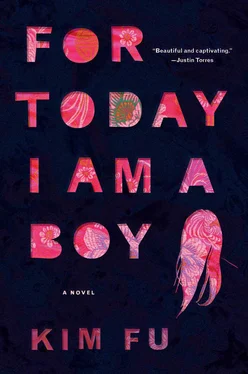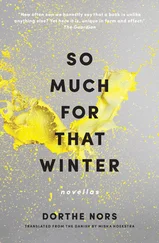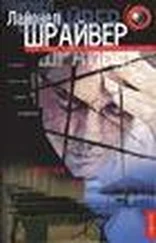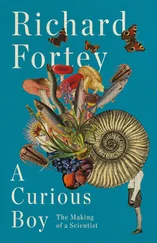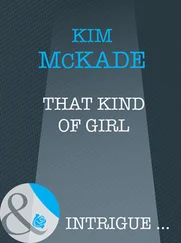“Never,” I said.
Bonnie pulled out two wigs. “You hear from Adele?”
The letters from Adele had petered out after I moved to Montreal. We sent unlabeled photographs instead, a few per year. Hers stopped being of churches and Reichstag buildings — or of the often cute, often severe-looking children who were in her charge as she went from job to job as a nanny — and started to be of her empty breakfast plate, the broken spine of a book she was reading, a shape that may have been a man’s back. At first I sent her pictures of the lit cross on the mountain, the steps of my apartment building, the Old Port, the café and the Japanese restaurant where I worked. Then they were of my salt-eaten boots, a kettle I’d found on the street, an old sweater of hers that I still wore to bed. I started carrying a pocket point-and-shoot with me all the time, just in case.
“She sent a picture of a cat. I assume it’s hers. You?” I said.
“Never,” Bonnie said. Her body went still for just a moment. I could see her snuffing out the sadness before she even felt it, like a match that lights, flickers, and dies in the wind before it has a chance to flare. I wanted to tell her that these allegiances weren’t intentional — Bonnie had a second mother in Helen, who clung to her failure to reform Bonnie in LA, and Adele and I had our cryptic, epistolary relationship — but I didn’t have the words to abridge our whole lives. Bonnie held out her hands with a wig balanced on each. “Okay. Pick one.”
Her left hand wore a metallic blue bob with straight-cut bangs. Neon pink curls flowed off her right. “They’re both very pretty,” I said. Reverence had crept into my voice.
“Some help you are.” She put on the pink wig. She tucked her pixie-cut black hair underneath at the edges, and then tossed her head back and shook out the curls.
“I’m losing my hair,” I blurted out. “Not losing. Lost.”
Bonnie turned to the unmounted, full-length mirror that leaned against the lockers. “Have you checked the couch cushions?” She adjusted the wig. “I still don’t know.” She came up behind me and plopped the blue wig onto my head, tugging it into position.
“What are you doing?”
She twisted me by the shoulders so we both faced the mirror. “Let’s get a side-by-side comparison.”
We stared at our reflections for what seemed like a long time. Bonnie didn’t rush me. The bangs hung in my eyes and added a blue glimmer to the top of my field of vision. When I moved my head, everything sparkled.
“Can I take a picture of us?” I asked.
I arrived at the café just before six the next morning. The opening server, Marisa, stood shivering on the front step in a red miniskirt and red leather jacket. No hat or scarf. I stepped past her glare, picked up the newspapers, and unlocked the door.
Marisa and I didn’t speak to each other for the first hour. The sun rose in the tall café windows as I painted long, tight curves of diluted bleach on the floor with a mop. Most days I liked mopping — the full muscular motions, pushing the bucket on its wheels in backward donkey kicks of my heel. One corner to another.
Marisa leaned on the counter, squashing her breasts in their low-cut sweater, ate a day-old pastry, and sucked down some coffee. The servers chose the music, and Marisa always chose something slow and depressing, to suit her scowling and slouching. If I looked like her, I would stand with my back straight and my chest thrust out, smiling with my white teeth and puffy lips. Male customers flirted with her with varying degrees of desperation. They promised her the world; they trembled and sweated. And Marisa just sighed. “Pathetic,” she’d say.
That morning, the boss rolled in on his Rollerblades at seven, the same time as the first customer. He usually didn’t come in until ten or eleven, if at all. Buddy muttered “Fuck, fuck, fuck” under his breath, his eyes bugged out, fried: he was coming down from something. He sat at the bar and yelled in my direction, taking off his skates.
“I bladed all the way from Laval,” he said. I had no concept of how long it would take to Rollerblade from Laval to downtown Montreal before dawn with your drugged heart racing at highway speeds. “The health inspector is coming in today.”
“Shit,” Marisa said, sidling up next to Buddy with a cup of coffee. “Man or woman?”
“Woman. They’re always the worst. Peter!”
“Yeah, Buddy?”
“Don’t lay out the inserts today. Keep them all in the fridge. Or, uh, in a carboy full of ice. But change the ice. All the time. No, keep them in the fridge. No — fuck. I don’t know. Just don’t leave them out like usual. And whatever she says, no matter how fucking crazy or impossible, you just say, ‘ Oui, madame. Oui, madame, ’ and nothing else. Got it?”
The customer stayed by the front door, quietly removing his gloves and tucking them in his pocket. Marisa ignored him and remained where she was. “Yeah, Peter,” she said. “Don’t fuck it up.”
“Pretty girls shouldn’t talk that way,” Buddy said, squeezing Marisa on the side of the stomach. He reached down and pulled something out of his bag. “Oh, and wear this.” It landed by my feet in the open kitchen. A hairnet and a black cloth hat.
“But I don’t have any hair.”
“Doesn’t matter.”
“But I can’t get hair in the food when I don’t have anything. See?” I ran my hand over my head. “Smooth. Smooth as an egg.”
“Still have to wear them. And if she asks, pretend you do every day.”
The hairnet scratched at my scalp, sunburned in the piercing blue-skied winter. Once I had secured the little hat on top, Marisa said, “You should wear it every day, Peter. It’s a good look for you.”
The customer coughed but didn’t speak, and neither did I.
I left that afternoon with the health inspector’s voice ringing in my ears. She’d called me into the walk-in cooler to point out a dripping box of meat above a shelf of vegetables. She waved a thermometer in my face to show how warm it was near the door. We climbed into the attic storage. She was a fast-talking, diminutive woman who could stand up straight under the low ceiling. When she saw the dead weevils in the sack of grain, I thought she was going to hit me. Oui, madame. Oui, madame.
I had the night off from the Japanese restaurant. I took my latest roll of film to get printed at the one-hour lab. I sat sucking on a soda on the curb outside while I waited, rubbing and rubbing my head, feeling its raindrop shape and unfamiliar lumps.
I took the pictures home. As soon as I was inside, I flipped straight to the end. One of the last pictures on the roll was of two girls standing shoulder to shoulder, taken in a mirror. The flash whites out their faces. Their reflections are softened by grease and dents, and the tilted glass makes both of them look taller and leaner. They have solid, brightly colored hair. The one in the pink wig has her arm around the one in the blue, and their heads lean together. Their bodies are straight lines, feminine but fashionably athletic, petite.
I went into the bathroom, which housed the only mirror, on the medicine cabinet above the sink. I would brush my teeth walking around the apartment to avoid it.
I pulled the chain on the bare bulb, setting it swinging, causing the light to bounce around the room, hide and reveal. I tilted my head down so I could see the whole thing, whole continents of skin flashing when the light swung by.
I got a black Sharpie from the main room, the kind I had used to draw on Adele’s back as a kid. Without looking, I wrote HELP ME across the back of my head. I held the camera behind me to take a picture.
Marisa and a counter girl whose name I couldn’t remember worked with me in the tiny corridor that constituted both the kitchen and the espresso bar. We had to slide around one another during the lunch rush. We held things above one another’s heads and sucked in our stomachs. Then Marisa turned suddenly from the milk shake machine. We collided. She dropped the shake in her hand, and the parfait glass shattered. Glass and a thick puddle covered the floor from end to end.
Читать дальше
